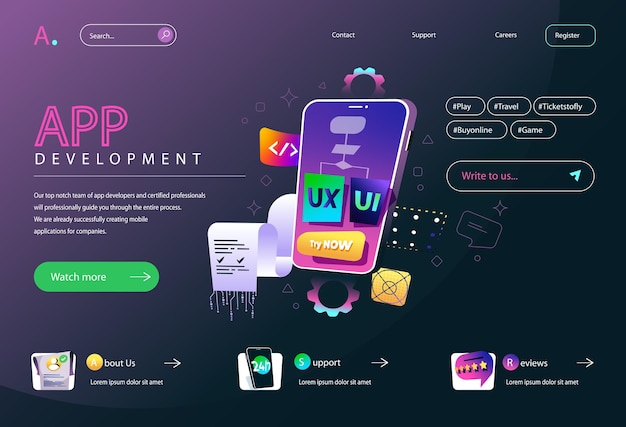Mastering the Art of App Development: A Comprehensive Guide
In today’s digital age, the demand for mobile applications has skyrocketed, making app development a critical skill for developers and businesses alike. Whether you’re a seasoned developer or a newcomer to the field, mastering app development involves understanding various aspects, from conceptualization to deployment and maintenance.

In today’s digital age, the demand for mobile applications has skyrocketed, making app development a critical skill for developers and businesses alike. Whether you’re a seasoned developer or a newcomer to the field, mastering app development involves understanding various aspects, from conceptualization to deployment and maintenance.
The journey of app development begins with ideation. It’s essential to have a clear vision of what problem your app will solve or what value it will provide to users. Conducting thorough market research helps identify gaps and opportunities, ensuring your app meets a genuine need.
Next comes planning and design. This phase involves creating wireframes and prototypes to visualize the app’s layout and functionality. User experience (UX) and user interface (UI) design play pivotal roles here, as they determine how users interact with your app and how intuitive it feels.
Once the design is finalized, it’s time for development. Choosing the right technology stack is crucial—whether native, hybrid, or cross-platform development—to ensure compatibility across different devices and operating systems. Writing clean, efficient code is essential for scalability and future maintenance.

Testing is a critical phase to identify and fix bugs, ensuring a smooth user experience. Techniques like unit testing, integration testing, and user acceptance testing (UAT) help validate the app’s functionality and performance under various conditions.
After thorough testing, deploying the app to an app store or enterprise environment is the next step. This involves adhering to platform-specific guidelines and optimizing the app’s listing for visibility and discoverability.
Post-launch, ongoing maintenance and updates are necessary to keep the app secure, reliable, and aligned with evolving user expectations. Monitoring analytics provides insights into user behavior and app performance, guiding future enhancements and updates.
Beyond technical skills, effective project management is essential for successful app development. Agile methodologies like Scrum or Kanban facilitate iterative development cycles, ensuring continuous improvement and flexibility in responding to changes.
Security is a paramount consideration throughout the app development lifecycle. Implementing encryption, secure authentication mechanisms, and regular security audits protect user data and maintain trust.
Moreover, understanding the business aspects of app development—such as monetization strategies, marketing, and user acquisition—ensures the app’s viability and profitability in the competitive app marketplace.
Recent Posts
Check Our Digital Marketing Services
- Amazon Advertising & Amazon Listing
- Contact Us
- Content Marketing
- Email Marketing
- Facebook Advertising
- Flipkart Advertising & Flipkart Listing
- Get Quote
- Google Advertising
- Google My Business (GMB) Management
- Portfolio
- PPC(Pay-per-click) Advertising
- Privacy Policy
- SEO services in varanasi
- Services
- SMM
- SMO
- Storybook
- Storybook Form
- Storybook Template
- Testimonials
- Website Development
- WhatsApp Marketing
- Work